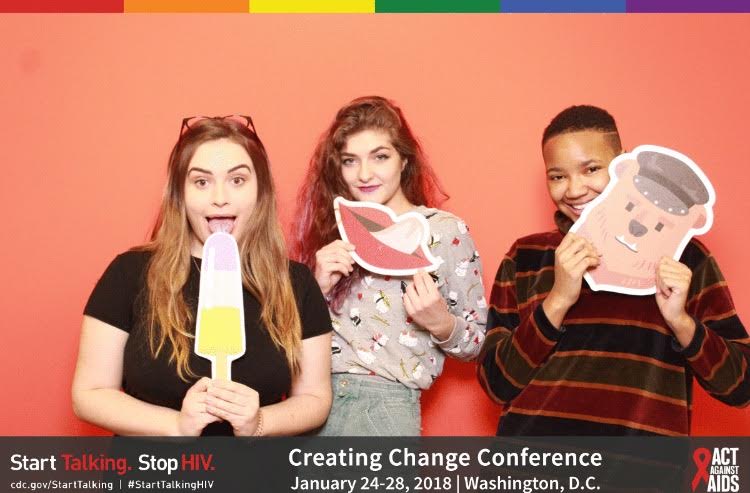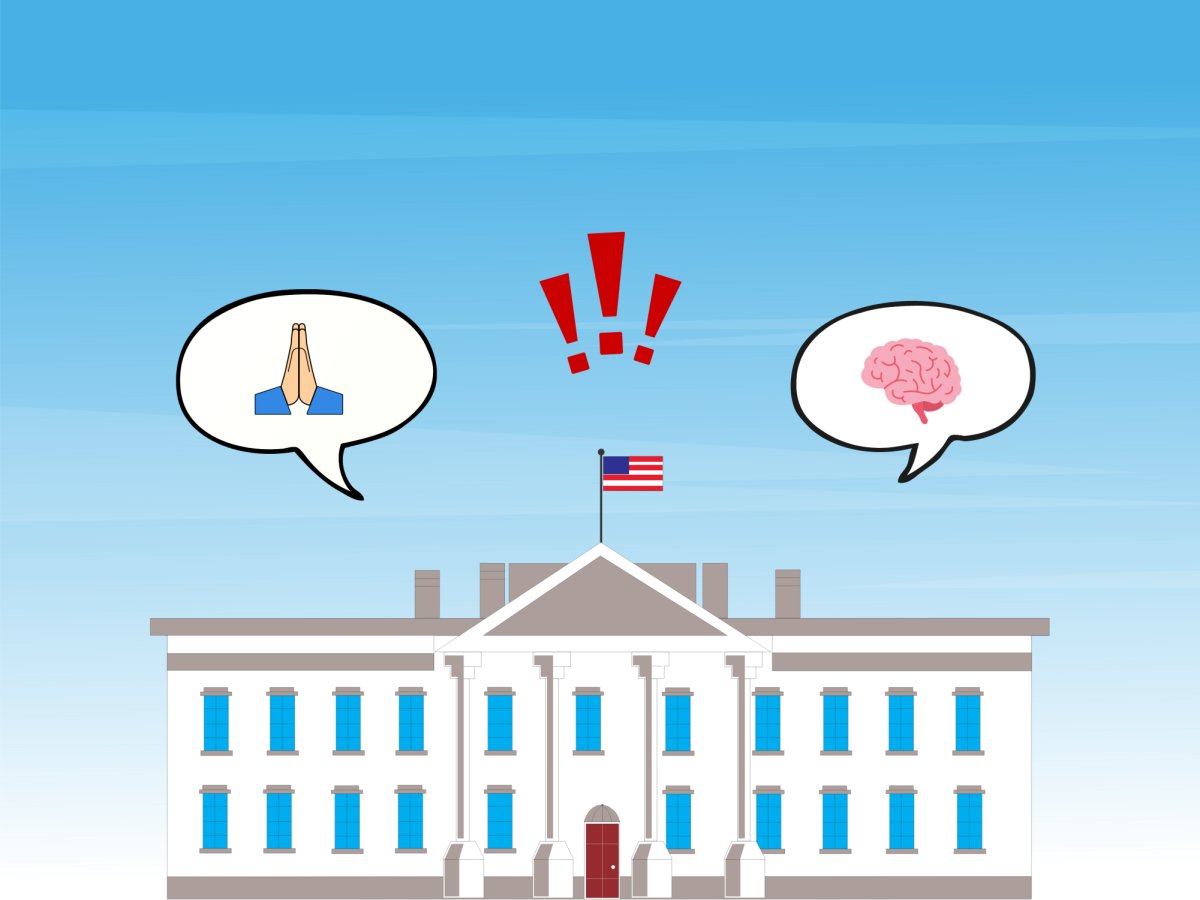What we learned and how to implement it on campus
This year’s Creating Change LGBTQIA+ Conference was both an invigorating and challenging experience for Rachel Cox ’19, KC E. Collins ’20 and myself. In celebration of the event’s thirtieth anniversary, thousands of queer and trans* people of all ages gathered from all over the nation in Washington D.C. With many allies by our side, we engaged in intense discourse regarding our continually evolving community.
Community was an ever-present theme throughout this past weekend, showing itself in moments none of us anticipated. While we found solace from the conference itself, many sessions focused on bringing community with us upon leaving D.C. We focused intently on the need to give queer and trans* people of color (QTPOC) a voice, agency and a seat at the table on college campuses.
Our journey of finding a seat at the table for QTPOC students began with Cox , a linguistics and French major. She pointed her gaze at the conference particularly at the access of resources for queer students and how race impacts those who identify as asexual. Through this experience, her main focus became the acknowledgement of intersectionality at St. Joe’s, or the differing identities many queer people experience simultaneously.
Throughout the workshops she attended, Cox found that the importance of self-awareness would aid her in many of her positions on Hawk Hill, and positively impact her place as a member of the Student Senate and as Secretary of Bridging the Gap.
“It became clear to me why I have been able to comfortably fly under the radar with my queerness,” Cox said. “And it is solely because of the color of my skin. Not everyone, and people of color especially, can do that.” As the conference continued, networking played a large role in our journey as well. As someone aspiring to work in student affairs, IHS major Collins (they/them/theirs), found many sought after spaces throughout the conference. They connected with many collegiate QTPOC affiliates, and attended sessions on a variety of intense topics, including dismantling whiteness in queer spaces; eliminating white supremacy in college organizations; queer sexual education and QTPOC organizing in higher education.
“Whiteness” was a term used often throughout the sessions, described as the act of an unmarked, unnamed place of privilege that serves the majority of people. Thinking back on their experience at the conference and what they had gained front it, Collins remarked, “There is a suffocating amount of whiteness on this campus that needs to be addressed, and eliminated for recruitment and retention of queer/trans students of color on this campus. The knowledge we were all able to bring back from this conference reassured me that it is possible.”
Collins compiled a vast amount of notes, mostly regarding sexual health and how to address our lack of knowledge. “When will change be implemented in needed communities?”Collins asked. As Collins now begins to gather their list of universities and organizations for potential summer internships, we look for their continued implementation of advocacy and awareness initiatives through the Office of Inclusion and Diversity.
Lastly, my interest in youth advocacy and writing for queer media as an English major led me to realize how acceptance should flourish on our campus as it continues to grow in our nation. It takes very little to make a person feel affirmed in predominantly white, cis-heteronormative spaces. Simply respecting the pronouns of a person and acknowledging their background without appropriating it allows for all people on campus to not only feel tolerated, but safe to exist in campus spaces.
“One of the aspects of perpetuating whiteness in society is accommodation, or acting so that the dominant group (white people) is never uncomfortable. We need to resist that and lean into discomfort, because that is where growth lies,” Cox said. Through all of our experiences over the weekend, we only became more aware of how acceptance of intersectionality as an increasingly diverse student body is essential to the health of our campus climate.
We hope to see that, as student leaders, the change in the outlook of our community will bring us success in the future. At the end of the day, what we value most as a university should not be our varying opinions and outlooks, but rather our ability to rise above in the spirit of being Hawks as one.













































